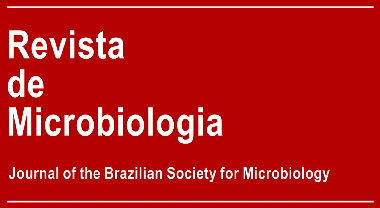The growth and autolysis of two strains of the entomopathogenic deuteromycete fungus Metarhizium anisopliae var. anisopliae were evaluated in medium containing casein or glucose as carbon source. Parameters such as economic coefficient and degree of autolysis were determined for each strain. Protease production was determined throughout the growth and autolysis phases of the cultures on medium under conditions of protease induction (in the presence of casein as sole source of carbon and nitrogen). The fungus was shown to utilize casein as a carbon/energy source in a more efficient manner than glucose. The autolysis shown by the strains was intense under both types of growth conditions, reaching up to 62.7% of the dry mass produced and started soon after the depletion of the exogenous carbon source. The relationship between the proteolytic activities of the two strains evaluated varied significantly (a maximum of 19.78 on the 5th day and a minimum of 2.03 on the 16th day of growth) during the various growth and autolysis phases, clearly showing that the difference between the growth curves and the difference in the kinetics of enzyme production may decisively affect the process of strain selection for protease production.
Metarhizium anisopliae; protease production; fungal growth; fungal autolysis; entomopathogenic fungus





